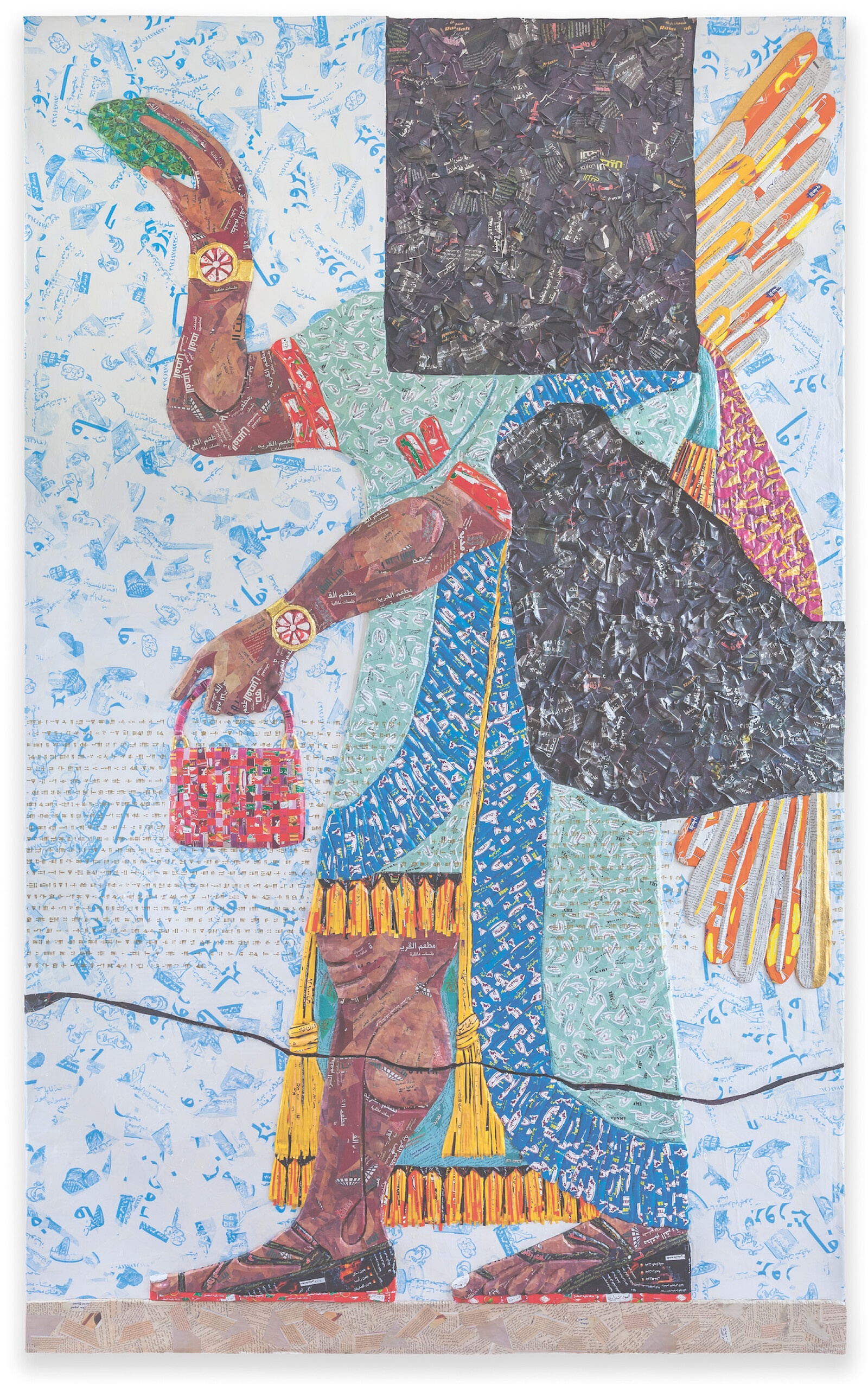Ouassila Arras
February 25–June 12, 2022
1 Bis Rue des Trinitaires
57000 Metz
France
Hours: Tuesday–Friday 2–6pm,
Saturday–Sunday 11am–7pm
T 0033 0 3 87 74 20 02
info@fraclorraine.org
The work of Michael Rakowitz (b. 1973, Long Island) interrogates the history of museums and their historical complicity in extractive and colonial legacies. His practice aims to establish a new dynamic of reparation and accountability. Born into a Jewish-Iraqi family, the American artist explores the transformations brought about by exile and finds ways to resuscitate images, forms, or architecture(s) that have disappeared, or are about to be erased.
For his first solo exhibition in France, Rakowitz explores the physical reality of his cultural heritage in order to raise questions about provenance and power, while sketching out new perspectives for potential decolonization. His work links the economic realities and cultural issues currently affecting Iraq in poetic and pragmatic ways.
For nearly 15 years, Michael Rakowitz has labored to make objects reappear that were looted from the National Museum of Iraq in Baghdad during the US-led invasion of the country in April 2003. This project includes items destroyed by the Islamic State at the Assyrian sites of Nineveh and Nimrud in 2015. Drawing on information produced by the University of Chicago’s Lost Treasures from Iraq database, UCLA’s Cuneiform Digitial Library Initiative and Interpol, the artist rematerializes a destroyed heritage by reconstructing objects in his Chicago studio with materials circulating in contemporary Arabic-American culture including food packaging, newspapers, etc.
The presentation of these works at 49 Nord 6 Est intersects with the institution’s ongoing investigation of the itinerancy and contingency of artworks; in this context, Rakowitz’s practice eloquently contributes to exploring the transformative potential of diasporic realities.
Degrés Est: Ouassila Arras
Ouassila Arras (b. 1993, Juvisy-sur-Orge) will be the eighth artist to occupy Degrés Est, a space dedicated to artists from the Grand Est region which features rotating proposals from three FRACs. Invited by Marie Griffay, director of the FRAC Champagne-Ardenne, the work of the Franco-Algerian artist usually takes the form of monumental installations. These often revolve around the notion of displacement, with a focus on family migrations linked to economic contexts.
Building on her investigation of invisible communities, Ouassila Arras’ proposal interrogates what it means to enter and inhabit a space. Having inherited a family story surrounded by historical silence—a muteness shared by both Algeria and France—the artist invites us to discover a specific social context. The genesis of the project was a meeting with Algerian War veterans who eventually emigrated to work in France. Members of the Chibani community, they came to France in the context of large-scale national construction projects; having now reached retirement, they are currently housed in a hostel. Unable to feel at home in either the country of their childhood or in France, they live in ongoing material and emotional precarity.
The exhibition translates their situation into new surroundings, placing visitors with the choice to enter or not, to participate or to view. Ouassila Arras’s work addresses pressing issues of cultural distancing, contamination, and displacement. This will be her “smallest work”—the Degrés Est room itself: one geography responding to another. The exhibition, accompanied by a publication, invites us to reconsider the threshold at which we accept what has taken place.
Events:
Brave book club
March 8–May 31
The book club is a space for discussions on literature.
Material culture in transit—Roundtable
March 12
What happens to objects when they are decontextualized?
Subjective Tours
March 23–June 1
Members of the Iraqi Yazidi community offer subjective tours of the exhibition.
What does it mean to return home?
April 3
Screenings and conversation
Introductory workshop to cuneiform writing
April 6
Iraqi Banquet
June 11, 2022
Free zone
June 12, 2022, Bring and pick up objects for free
Director and curator (Michael Rakowitz): Fanny Gonella
Curator (Ouassila Arras): Agnès Violeau
Public program: Justine Jean
Communication: Lise Augustin


